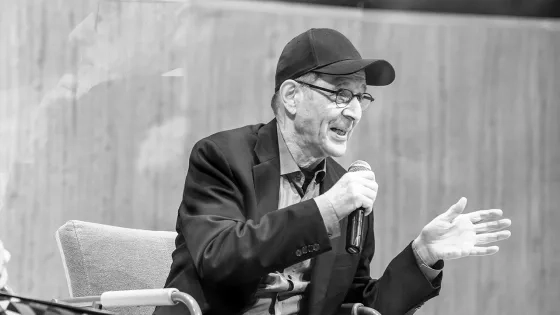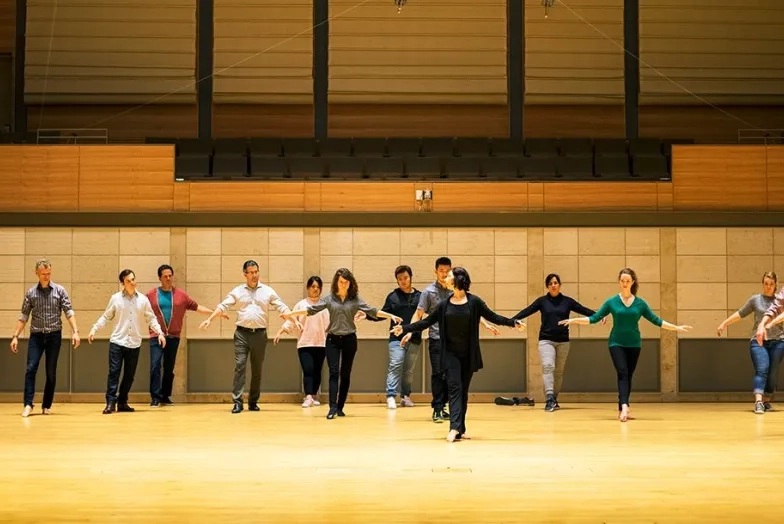Steve Reich Inspires at SFCM
Steve Reich, one of the most influential composers of the last half century, dropped by SFCM this month to participate in a Q&A with Provost and Dean Kate Sheeran and faculty member David Tanenbaum. Reich was in San Francisco as Bay Area organizations had programmed special performances of the composer’s works in observance of his 80th birthday. The talk at SFCM offered a glimpse into Reich’s early career, the success of his recordings, his influence on the next generation of artists, and more.
Reich is one of the most inspiring and down-to-earth speakers in the classical world today, and it’s easy for students to pick up on his approachability during talks. He exemplified his refreshing and straightforward manner in commenting on his choice of instrumentation and ensemble size in the scope of the nature of his music. "It’s not what I do," he said, referring to his infrequent writing for the orchestra.(However, he left the door open as he is currently working on a new work to be titled Twenty Soloists and Orchestra.)
Perhaps the most important and inspiring takeaway from the event was Reich’s emphasis on the future of music. He views the current generation as incredibly promising, highlighting the budding careers of intrepid composers like Bryce Dessner (of The National), Nico Muhly, and Andy Akiho. While Reich acknowledges his own generation breaking from the classical establishment, it is clear he is excited for what is coming next.
Selections from the Q&A:
On Reich’s compositional process and beginning a new work:
"That’s the worst thing in the world! There’s nothing harder than getting started."
On "bringing honest music to fruition" as a composer:
"It wouldn’t hurt to know some harmony and counterpoint. And it wouldn’t hurt to know as much musical history as you can."
On how Reich knows when a piece is finished:
"It’s when I draw the double bar … Music is an art in time, as is dance, as is film, as is video… so you must have a sense of what’s right at any given moment. That’s part of the skill of composition. And it’s very much intuitive."
On how to propel your career as a young composer:
"Form your own ensemble, play your own music … get involved. Do what you love, discard what you don’t."

